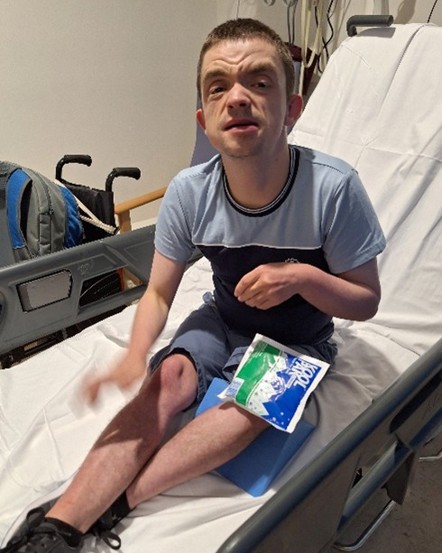When Your Child’s Mental Health is a Concern

Miriam Gwynne
Full time mum and carer for two truly wonderful autistic twins. I love reading, writing, walking, swimming and encouraging others. Don’t struggle alon...
There is much more awareness of mental health in adults these days.
Celebrities are talking about it, it is much less of a taboo and the NHS spends an estimated 5.5 million pounds a week on prescription antidepressants!
We are well versed now-a-days to look out for signs of depression and other mental health struggles in our friends and loved ones like less interest in life, low mood, not interested in food or socialising and perhaps showing signs of stress or anxiety.
We can talk to them, encourage them to seek help and generally keep an eye out for them.
But what if you are worried about your child’s mental health? I have had concerns about my daughter’s mental health for years.
She was a chatty, happy toddler who loved cuddles and playing with her little figures. However, when she started nursery everything changed and I watched my chatty and happy toddler withdraw and start to struggle with food.I was told she was just adjusting to the change and it was just a phase but part of me still worried. She had no friends in nursery and would move away as soon as another child came near her.
She never spoke in nursery and never joined in with snack. She never smiled while she was there either. It was heart-breaking!
I was told she was just shy. I decided she was perhaps not used to being around other children so I tried toddler groups.
She hated those too and clung to me like her life depended on it. It was such a trauma I stopped taking her in the end.
Just before her fifth birthday she was formally diagnosed with autism and I thought this explained everything.
No-one ever talks about children having mental health struggles or anxiety at age 5 so I kept my concerns to myself.
She never grew out of it though.She was miserable at school and refused to eat or drink there. She never spoke there and withdrew even more than she had before.
My husband has depression and I watched as my five year old daughter seemed to show so many of the signs he had yet no-one seemed to notice apart from me.
One night I decided to go out to an event at her school.
It was a critical moment in my child’s life as her anxiety about being away from me hit a new level and she took a massive panic attack and struggled to breathe.
My husband called me and I came home right away. Once I was home she settled but for months and months afterwards she refused to leave my side.I took her to the GP who said it was just the change with starting school and not to worry.
I often wonder if an adult had went with the same symptoms whether the reaction of the GP would have been different.
The GP did refer my daughter to the child and adolescent mental health service though (CAMHS) and she was one of the lucky ones whose referral was actually accepted.
Statistics range from 1 in 5 to 1 in every 3 referrals to CAMHS being refused. Again could you imagine if that level of mental health referrals were refused for adults in mental health crisis?Did you know that when a child is referred to CAMHS with signs of anxiety or depression or other mental health struggles that the first assumption that is always made is that it is the parents fault? It is awful!
My daughter is now 9 and we have been seeing various people to support my daughter’s mental health struggles for four years now.
In all that time no-one has actually worked with or spoken to my daughter on her own and 90% of the time appointments are just for me.
While I understand I have a huge role in supporting her I do think they often forget that it is primarily my daughter who is struggling, not me!
If my husband went to see the GP or a councillor and they said they wanted to work with me instead I know he would be mighty angry and upset at that, yet for children it seems that they should be ignored while the parent has to attend parenting classes.
My child’s mental health struggles will still be there regardless how many parenting classes I do.
Mental health in children is a huge concern and some figures suggest that as many as one in ten children have such significant struggles with their mental health that it affects their learning, eating, focus and ability to cope.Children CAN and DO have mental health struggles just the same as adults. We cannot ignore this.
If you are worried about your child’s moods, appetite, resilience, anxiety, or ability to concentrate, do see your GP, do talk to your child’s school.


